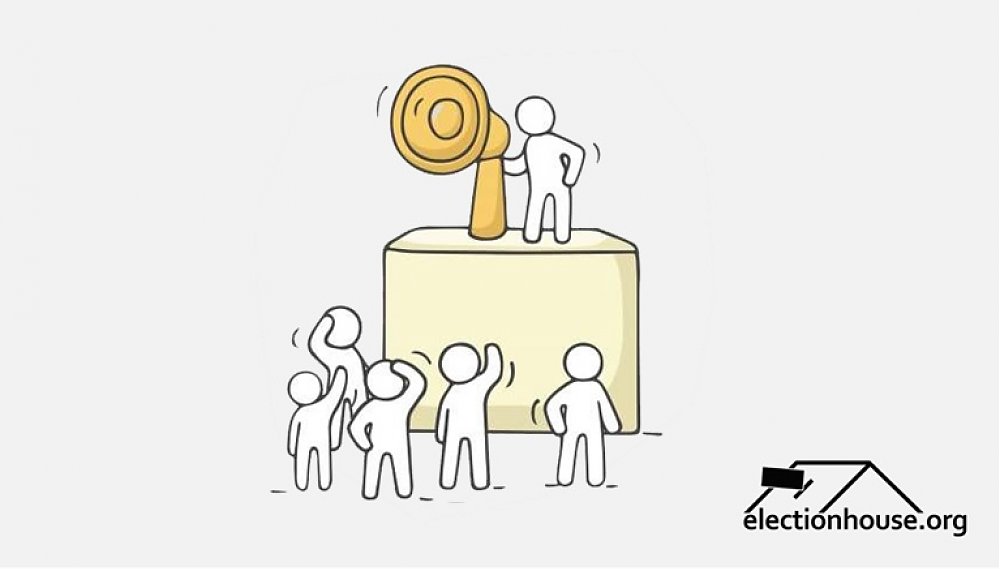These days there is increasingly loud criticism of the Election Supervisory Body (Bawaslu) as the election organizer, especially regarding the selection of regency/city Bawaslu members. As the election approaches, regional Bawaslu offices are, in fact, adorned with several newly selected members who were not directly involved in the election supervision process before. This situation suggests that there may be a high price at stake in this election.
In an opportunity to have a dialogue with former election organizers, several issues related to this election process arose. First, the domination of political parties in determining who is elected as election organizers. Second, although it is difficult to prove, it is suspected that the election process has had a lot of contact with the practice of money politics. Third, there is co-optation carried out by the regime in a structured, massive and planned manner towards various political resources, specifically through election hijacking.
The three issues above do need to be proven empirically, although we can still agree that criticism of the performance of election organizers is not a new phenomenon. Previously, the integrity of the General Election Commission (KPU) was also widely questioned. Various criticisms of election organizers show the fear that elections will again be hijacked, that elections will again become a political rite that has lost its dignity.
Hijacking in the name of elections has indeed been found frequently in the history of this nation. Often, elections are understood primarily in terms of procedural aspects rather than representation. After elections, we often have little knowledge of who represents whom and what. Consequently, elections can become mere procedural mechanisms that reinforce the dominance of specific political elite groups. In the end, elections may only produce predatory elite groups that act against the interests of the people.
Elite domination actually shows the absence of the people in the political space. This condition has implications for the homogenization of power patterns and structures, leading to the creation of a political structure that becomes increasingly monotonous. This monotony becomes apparent when many of us grow tired of seeing the same politicians who never seem to leave the stage of power. They often even play the role of referees, determining who has the right to rule and who does not.
These elites becomes increasingly dominant due to the culture of patronage that also exists within political parties. Each party member is a client who tries to get closer to the source of power in order to become an elite in another spectrum of power. As a result, our democracy cannot rely on political parties to fight for the people's vote. The function of political parties is actually carried out by elite individuals and political parties have lost their main function as intermediary actors. From here we can be skeptical about the functions of aggregation, articulation and representation that have been attached to political parties.
Therefore, more broadly, I believe that the dominance of these elites can at least have an impact on two aspects related to Indonesian democracy. First, it leads to the loss of confrontational political dynamics within Indonesian democracy. Second, it results in the loss of the people's access to politics.
The loss of confrontational political nuances in Indonesian democracy is illustrated by the domination of the same actors again and again. These actors have a negative impact on the quality of our democracy. Democracy is often understood as a procedural form or a value-neutral decision-making method based on rational consensus. However, true democracy is more than that; it is inherently a confrontational political mechanism that allows for conflictual consensus as a condition that provides space for various models of political interpretation. This condition is necessary to accommodate the voices of minority groups that have been excluded from the centers of power.
Understanding that democracy as a confrontational space has implications for an inclusive political space. This means that politics is no longer a dish for those who have so far benefited from access to political resources. Democracy is the right of every group and is not allergic to various articulations of voices and interests. Therefore, if election hijacking continues to succeed in forming a democratic political space that is increasingly homogeneous and centralized, then this condition will actually lead to the deconsolidation of Indonesian democracy.
Regarding the loss of the people's access to politics, democracy is not always about formal or procedural politics. Even though procedural aspects are important, including through elections, substantive aspects of democracy are more essential. Substantive aspects are reflected in the creation of conditions that place the people as the primary actors in politics. This means that the people have opportunities to express and articulate their interests. The people also have space to challenge any domination and hegemony that continuously negates political differences.
The loss of people's access to politics has implications for the loss of people's "power" in democracy. The people continue to be placed as objects of elite interests in democratic rituals such as elections. As a result, the people lose their function, especially the function of control over the exercise of power. If this condition continues, this elite domination will also diminish the essence of the people. In addition, this condition also fails to mature our political democracy in respecting every citizen's political rights.
In conclusion, the fear of elections being hijacked again needs to be countered by reaffirming the essence of democracy. This is a collective struggle and cannot rely solely on old actors or institutions that are increasingly co-opted by the circles of power. This struggle is an effort to restore the dignity of democracy and to place the people as active actors in an inclusive political space. It is a fight against the efforts of political elites to continuously diminish the significance of the people in democracy.
[] FAIZ KASYFILHAM
Researcher at Research Centre for Politics and Government (PolGov) and Election Corner Faculty of Social Political Science Gajah Mada University (UGM)
Translated by Catherine Natalia











